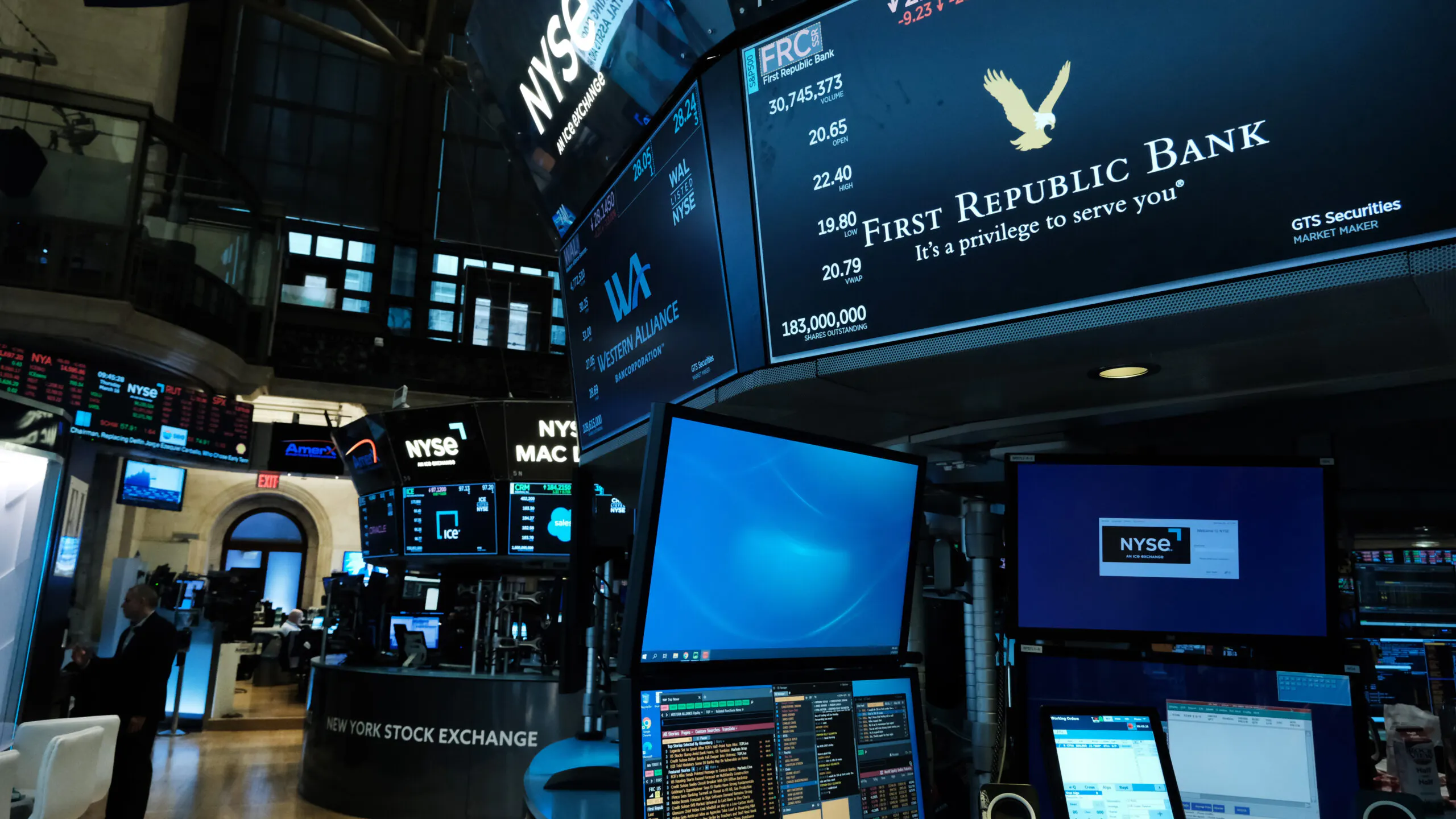Shares in First Republic Bank plummeted some 26% on Friday morning even after a rescue deal backed by a number of large financial institutions.
Wells Fargo, JPMorgan Chase, Bank of America, and Citigroup each offered to contribute $5 billion of liquidity to assist First Republic Bank, which is heavily involved in wealth management and has many customers with deposits exceeding the $250,000 threshold protected by the Federal Deposit Insurance Corporation. Banks such as Truist Financial and BNY Mellon also contributed to the overall $30 billion arrangement.
Treasury Secretary Janet Yellen, Federal Reserve Chair Jerome Powell, FDIC Chairman Martin Gruenberg, and Acting Comptroller of the Currency Michael Hsu said in a statement that the “show of support” is “most welcome” and “demonstrates the resilience of the banking system.”
Share prices for First Republic Bank, which had exceeded $147 as of last month, nevertheless fell below $26 as of Friday morning, indicating an 83% decline. Executives announced on Thursday that they would suspend the company’s dividend.
John Heagerty, an analyst at Atlantic Equities, downgraded First Republic Bank and noted that the firm may need another $5 billion in capital. “Management is exploring different strategic options which may include a full sale or divestments of parts of the loan portfolio,” Heagerty remarked, according to a report from CNBC. “The limited information provided implies that the balance sheet has increased substantially, which may well necessitate a capital raise.”
Wedbush Securities likewise downgraded the company and noted that a distressed merger could “result in minimal, if any, residual value to common equity holders,” according to a report from The Wall Street Journal. Analysts nevertheless believe that a sale of First Republic Bank to a larger financial institution “should be beneficial for the banking system as a whole, and should help ease contagion fears.”
Shares of First Republic Bank had declined some 73% between March 8 and March 13, the time horizon over which Silicon Valley Bank and Signature Bank were shuttered by the FDIC as depositors rushed to withdraw funds. Prices for First Republic Bank had risen more than 10% on Thursday amid the deposit assistance discussions.
First Republic Bank maintains $271 billion in assets, an amount comparable to the $212 billion maintained by Silicon Valley Bank and the $110 billion maintained by Signature Bank. JPMorgan Chase, Bank of America, Citigroup, and Wells Fargo control $3.7 trillion, $3.1 trillion, $2.4 trillion, and $1.9 trillion respectively, a phenomenon noted by those who observe that the collapse of smaller banks could induce consolidation in the financial sector.
As with First Republic Bank, the vast majority of deposits at Silicon Valley Bank, which offered services to nearly half of the venture-backed technology and healthcare firms in the United States, exceeded the $250,000 threshold typically insured by the FDIC. Regulators scrambled to guarantee all deposits at Silicon Valley Bank such that the remainder of the financial system, in which roughly half of deposits surpass $250,000, would remain protected from bank runs.
Yellen nevertheless asserted on Thursday that financial regulators were more likely to favor large banks whose implosion could “create systemic risk and significant financial and economic consequences” when deciding whether to protect deposits above the insurance threshold.

.png)
.png)

